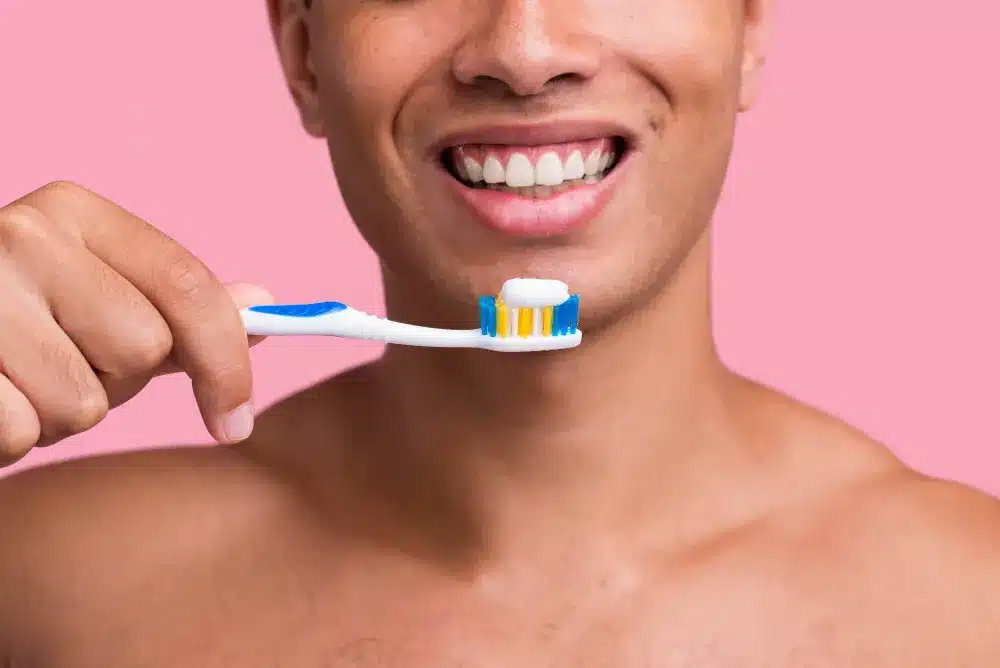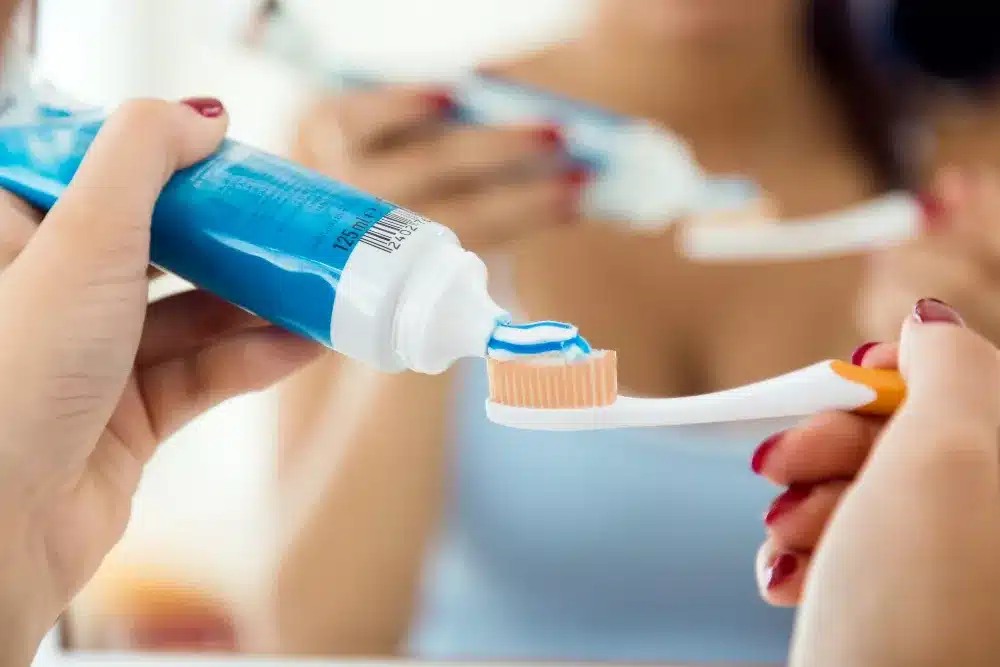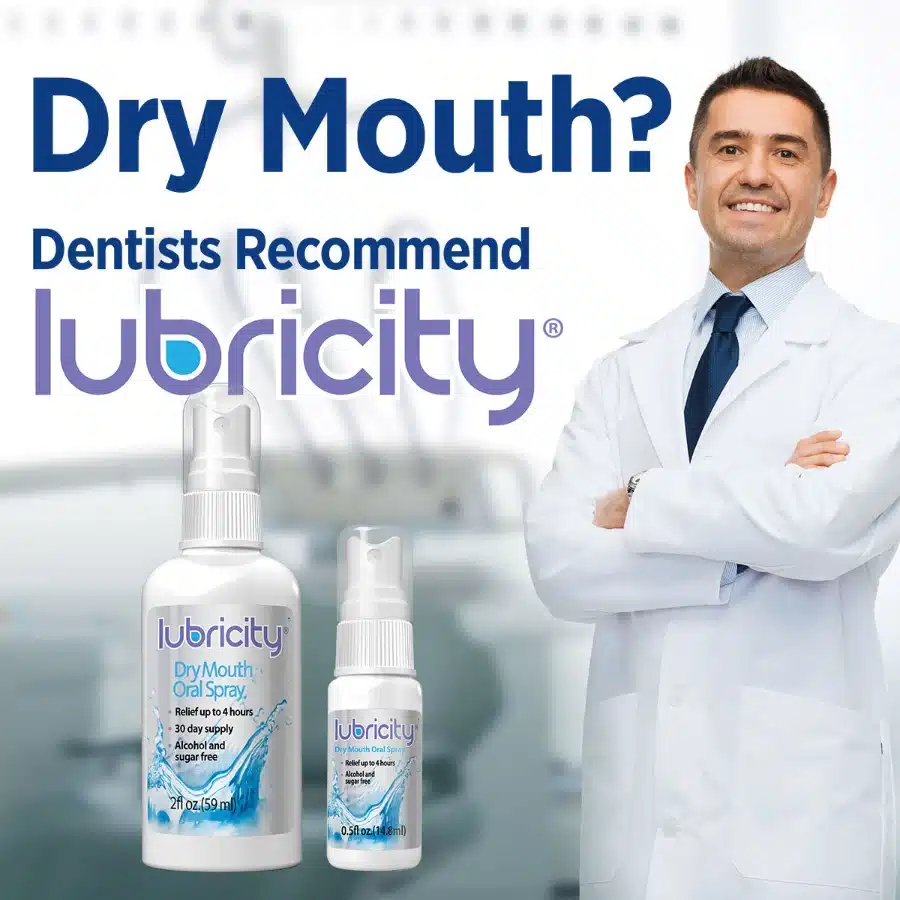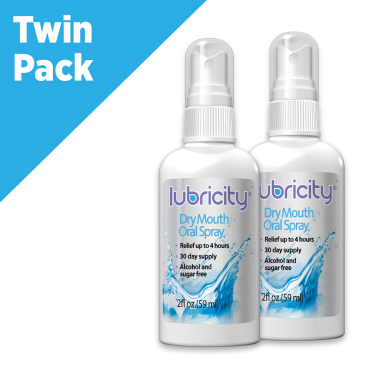Introduction
Your smile shines brightly because of the health of your teeth, which is closely related to your overall health. Many people believe that having strong teeth means you need to do complicated things, which begs the question, how to strengthen your teeth? By sticking to a regular oral hygiene routine, you can make a big difference in the overall health of not just your oral cavity but your body as a whole. In this helpful guide, you will find practical advice and information that will help you boost your dental health by strengthening your tooth enamel from the inside out.
Key Highlights
- Discover the significance of tooth enamel and ways to protect it from erosion.
- Explore practical tips for strengthening teeth, such as using fluoride toothpaste and maintaining a balanced diet.
- Understand the role of saliva in oral health and learn how to combat dry mouth.
- Find out the impact of diet on dental strength and which foods to avoid for healthy teeth.
- Learn about dental sealants and how they provide added protection for your teeth.
Essential Tips to Strengthen Your Teeth
When we think about “strengthening” teeth, we mostly focus on improving tooth enamel, which is the top layer of your teeth. Tooth enamel is often regarded as the hardest material in the body and is mainly made up of minerals. It serves as a strong barrier, protecting the deeper parts of your teeth from harm. Yet, this tough barrier can wear away because of things like acidic foods and drinks, not taking care of your mouth properly, and some medical conditions.
The good news is that you can actively take steps to safeguard and even boost the strength of your enamel, which helps lower the risk of decay and pain. In the next parts, we will provide several handy tips and strategies to support you in achieving great oral health.
1. Incorporate Fluoride into Your Oral Care Routine
Fluoride is very important for strengthening tooth enamel and making it tougher against acid attacks that can result in cavities. By replacing lost minerals in the enamel through a process known as remineralization, it helps. When you apply fluoride toothpaste or mouthwash, the fluoride ions go into the enamel and attract other minerals, like calcium and phosphate, that naturally exist in saliva.
Together with fluoride, these minerals help rebuild and strengthen the enamel, making it more resistant to decay. By including fluoride in your daily oral hygiene routine, you ensure that your teeth get ongoing protection against acids from bacteria in plaque, which helps maintain a healthier and stronger smile.
In addition to strengthening existing enamel, fluoride also prevents the growth of harmful bacteria in your mouth. These bacteria produce acids that can wear away enamel, which leads to tooth decay. With regular fluoride use, you create an environment that makes it hard for these bacteria to survive, reducing their ability to cause damage.
2. Choose Foods That Support Dental Health
What you eat directly affects the health of your teeth. With tooth-friendly foods in your diet, you can help your teeth stay strong and healthy. For example, dairy products are excellent sources of calcium, which is important for strong teeth and bones.
In addition, leafy greens are filled with vitamins and minerals that support healthy teeth and gums. Crunchy vegetables, like carrots and celery, also work as natural toothbrushes, cleaning your teeth as you chew. These tasty foods not only give you vital nutrients but also help with saliva production, which is essential for neutralizing acids and cleaning away food bits. Always remember, eating a balanced and nutritious diet will help strengthen your teeth while keeping your mouth healthy and your smile bright.
3. Minimize Sugary and Acidic Food Intake
Sugary and acidic foods may be really tempting, but they can cause serious damage to your tooth enamel, increasing the risk of tooth decay and erosion. When you eat these foods often, they make an acidic environment in your mouth. This is where harmful bacteria can grow, as they feed on sugar and create acids as a byproduct.
These acids attack your enamel, making it weaker and more likely to decay. Over time, this leads to cavities, sensitivity, and even changes in tooth color. It’s not necessary to cut these treats out completely; instead, you should enjoy them in moderation.
4. Stay Hydrated to Promote Saliva Production
Staying properly hydrated is very important for keeping your oral health in check. It helps with saliva production, which is your mouth’s way of defending itself. With saliva, food residues get washed away, and harmful acids that can affect your teeth are neutralized. Drinking plenty of water during the day makes sure your mouth has enough saliva to do these protective jobs.
In addition, saliva has key minerals like calcium and phosphate. These are important for strengthening and remineralizing tooth enamel. With those minerals, your enamel can repair the tiny damage that happens every day from chewing and acids.
5. Practice Consistent and Proper Oral Hygiene
Having strong teeth means more than eating healthy food. To keep your teeth in good shape, you need to have a proper oral hygiene routine. Daily brushing is the foundation of good oral health. By brushing, you can get rid of plaque, a sticky film that builds up on your teeth and contains harmful bacteria. Using fluoride toothpaste makes this better since it helps in strengthening tooth enamel and boosts its ability to resist decay.
Nevertheless, when it comes to getting into the tight spaces between your teeth, brushing alone won’t do it. Here, flossing is important. By regularly flossing, you can clear away bits of food and plaque from these hard-to-reach spots. This practice greatly lowers the chances of getting cavities and gum disease.
6. Address Dry Mouth Effectively
Saliva is important for keeping your mouth healthy. It helps with digestion and protects your teeth too. Unfortunately, some medications, certain medical conditions, and even lifestyle choices can cause dry mouth. This is when your body doesn’t make enough saliva. A dry mouth can negatively impact your teeth because it inhibits your ability to wash away food or fight acid, which can lead to a greater risk of tooth decay.
If you notice you have a dry mouth, it’s important to see your dentist or doctor. They can help figure out what’s causing it and suggest the best treatment. Besides getting professional help, adding a few simple home remedies to your daily habits can help you feel better and boost saliva production. Staying hydrated is super important, so make sure you drink plenty of water each day.
7. Use a Saliva Substitute like Lubricity
A saliva substitute can play a crucial role in maintaining oral health especially if you have an autoimmune disease, Sjögren’s syndrome, head or neck cancer, aging, or different medications that decrease the amount of saliva your body is producing. One such product is Lubricity, which can aid in giving you that added moisture in your mouth. Lubricity Dry Mouth Oral Spray is scientifically designed to be an all-natural premium product, featuring hyaluronic acid, a powerful natural moisture retainer, to give you long lasting relief from dry mouth discomfort for up to 4 hours! By incorporating dental products like Lubricity into your daily regimen, you can enhance remineralization processes and protect against demineralization, ultimately contributing to the overall health of your teeth. Remember, the right dental products can be powerful allies in your journey towards healthier and stronger teeth.
8. Regular Dental Check-Ups and Cleanings
While keeping up a careful oral hygiene routine at home is important, going for regular visits to your dentist matters a lot for your dental health. During these visits, you get professional cleanings that can take away plaque and tartar that your regular brushing might not remove. With tartar, if not taken care of, it can grow harmful bacteria and cause serious dental problems.
9. Consider Dental Sealants for Added Protection
Dental sealants serve as a prevention tool, mostly for kids and teens, but they can help adults too. Typically, these thin coatings are put on the chewing surfaces of the back teeth (molars and premolars), where we chew the most and where decay is likely because of deep grooves and cracks.
The application of sealants is easy and doesn’t hurt at all. With the sealant material, it gets painted onto the surface of the tooth, where it sticks to the enamel and becomes solid. This process effectively fills in the grooves and cracks, making a smoother surface that’s easier to clean with regular brushing, helping to lower the chances of forming cavities and maintaining long-term dental health.
Understanding the Role of Saliva in Oral Health
Saliva, which many people don’t think about, is very important for keeping your mouth healthy. It frequently washes over your teeth, which helps in neutralizing acids created by plaque bacteria and in removing food bits. This ongoing cleaning helps to stop tooth decay and keeps your mouth feeling nice and fresh.
How Saliva Helps in Strengthening Teeth
Saliva isn’t just a liquid that keeps your mouth moist; it’s an important fluid that helps strengthen your tooth enamel through something called remineralization. In simple terms, remineralization is the reverse of demineralization. When plaque acids hit your tooth enamel, they cause a loss of minerals, making your teeth more vulnerable to decay.
In this situation, saliva comes to the rescue. Saliva contains calcium, phosphate, and fluoride ions, which are key minerals for enamel health. When acid attacks the enamel, saliva flows in, bringing these vital minerals to the damaged spots. Then, the calcium and phosphate ions attach to the enamel, helping to restore the minerals that were lost and strengthening the weak areas.
Fluoride plays its part, too. Known for its ability to combat tooth decay, fluoride aids the remineralization process by making the enamel tougher against acid attacks. Hence, keeping up good saliva flow is very important. It serves as a steady source of crucial minerals, helping to protect and strengthen your enamel all day long.
Combatting Dry Mouth for Better Dental Health
Dry mouth is when your body doesn’t make enough saliva, which leads to uncomfortable feelings and potential harm to your dental health. Saliva is important because it helps neutralize acids, rinse away food bits, and support your teeth. With less saliva, your mouth can become a place for bacteria to grow, raising your chances for cavities, gum disease, and bad breath.
If you feel like your tongue is swollen or that it is tough to talk because your mouth is so dry, you should talk to your dentist or doctor to find out what’s causing it. This might be due to the side effects of medicine or some medical conditions. In addition to seeing a professional, you can also make some lifestyle changes and try home remedies to feel better from dry mouth. Drinking plenty of water during the day is important or consider trying a dry mouth spray like Lubricity or Lubricity Xtra, which act as saliva substitutes. Chewing sugar-free gum or sucking on sugar-free candies can help get saliva moving again. By brushing and flossing regularly, you help keep your mouth clean and lower the chance of problems linked to dry mouth.
The Impact of Diet on Dental Strength
The food choices you make every day greatly affect your overall health; especially how strong your teeth are. With a diet filled with essential nutrients, you provide what is needed for strong teeth and healthy gums. Since a balanced diet supports your body, it also helps keep your teeth in good shape.
In contrast, a diet that has a lot of sugary and acidic foods leads to issues in your mouth that can cause tooth decay. These kinds of foods feed bad bacteria, which can result in enamel erosion and weaker teeth. Because of this, knowing how diet impacts your oral health is important for making choices that will help keep your smile healthy for a long time.
Nutrients Essential for Strong Teeth
Maintaining strong teeth depends on various essential nutrients that work together to care for dental health. For calcium, it’s often known as the building block of bones, but it also plays a vital role in strengthening tooth enamel. By including calcium-rich foods in your diet, like dairy products such as milk, yogurt, and cheese, you can help build up your teeth from within.
With phosphorus, another essential mineral that works alongside calcium to support enamel strength. It can be found in foods such as meat, poultry, fish, beans, and nuts. By adding these foods to your meals, you can make sure to get enough of this important nutrient.
To absorb calcium effectively, vitamin D is crucial for your body. It helps make sure your body can use the calcium you take in from your diet to strengthen both teeth and bones. Great sources of vitamin D include fatty fish, like salmon and tuna, egg yolks, and fortified foods. By focusing on these nutrients in your daily meals, you can provide your body with the necessary building blocks for keeping strong, healthy teeth.
Foods to Avoid for Healthy Teeth
While we usually think about which foods are good for our teeth, it’s also necessary to know about the bad ones that can harm our oral health. Sugary foods, even if they are tempting, are at the top of the list of problems. Sugar helps bacteria grow in our mouths, which creates acid that wears away tooth enamel and increases the chances of cavities.
Acidic drinks, like soda and citrus juices, add to the problem of enamel erosion. Even though these drinks can be refreshing, their high acidity can weaken teeth slowly, making them more likely to decay and experience increased sensitivity.
Also, starchy foods, like bread, crackers, and chips, can turn into simple sugars in the mouth, even if they aren’t sweet at first. This breakdown also feeds acid-making bacteria. Enjoying these foods in moderation won’t mean they are totally off-limits, but it’s essential to take steps to lessen their effects on your teeth.
Conclusion
Taking care of your dental health is important for your overall well-being. With fluoride, you can strengthen your teeth. By choosing tooth-friendly foods, you help prevent decay. With proper oral hygiene, it’s easier to keep your mouth healthy. Also, remember to stay hydrated. For better protection, attend regular check-ups and think about using dental sealants. Saliva has an important role in oral health. It helps strengthen teeth and fight against dry mouth. By following a balanced diet rich in essential nutrients, you’re key to maintaining strong teeth. Through these essential tips and understanding the value of saliva and a good diet, you can have a healthy smile.
Frequently Asked Questions (FAQs)
Weak teeth often show some common signs. For instance, you might notice increased sensitivity when you eat hot or cold foods. Additionally, visible changes in color can happen, like yellowing or other discoloration. You could also find small cracks or chips in your teeth. Moreover, having frequent cavities or tooth decay can be another sign that your teeth are weak.
You can make your teeth stronger at any age. With remineralization, you can use fluoride, and by following a consistent oral care routine, you can really improve your dental health.
Lubricity Dry Mouth Spray goes beyond just providing relief for dry mouth; it plays a significant role in promoting dental health by stimulating saliva production. Saliva is essential for maintaining oral health as it helps wash away food particles, neutralize acids, and remineralize teeth. By hydrating the mouth and combatting dryness, this spray not only alleviates discomfort but also supports overall oral hygiene. Regular use of Lubricity Dry Mouth Spray can contribute to stronger teeth, healthier gums, and a reduced risk of cavities and other dental issues. Its hydrating formula ensures long-lasting moisture and comfort, making it a valuable addition to any oral care routine.




















